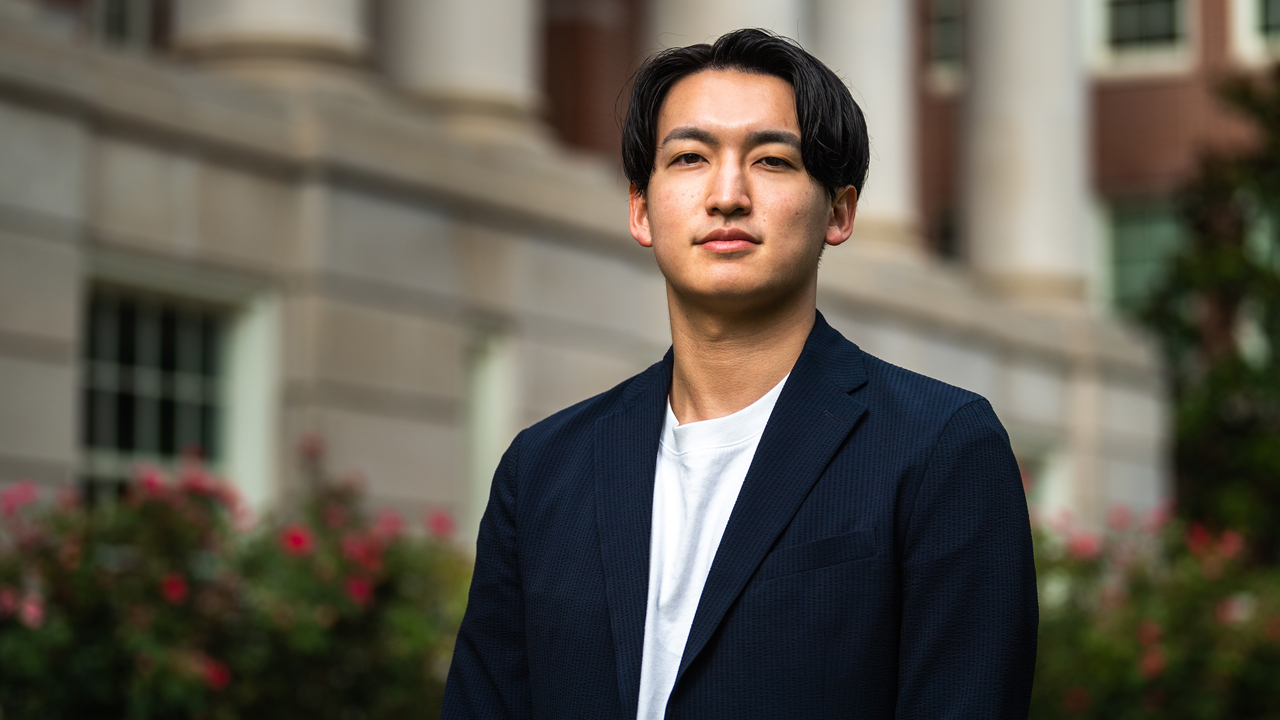Aerospace doctoral student reaches for the stars with NASA FINESST award
Published: Jul 12, 2021 1:43 PM
By Cassie Montgomery
Planetary scientists believe that asteroids may hold information about the formation of our universe. Doctoral students like Auburn University’s Ryota Nakano will play a critical role when it comes to decoding that information.
Nakano is a graduate student researcher in the Space Technology Application Research (STAR) Lab, led by assistant aerospace engineering professor Masatoshi Hirabayashi. His research at the STAR Lab focuses on uncovering formation and evolution processes of asteroids and comets in the solar system.
Nakano is one of the latest recipients of a prominent research award from NASA to further his research over the next three years, with the goal of helping to shed light on the evolution of binary asteroids and potentially contributing to planetary defense and NASA’s future spaceflight missions.
The Future Investigators in NASA Earth and Space Science and Technology (FINESST) program supports graduate student-designed research projects that contribute to the science, technology and exploration goals of NASA’s Science Mission Directorate. Out of 249 proposals, just 32 were selected for funding in the current budget year. Nakano’s proposal was awarded the maximum, three-year total award of $135,000 in research and support funding.
“The FINESST is always very competitive every year,” he said. “The FINESST solicitation states that this award has the potential to be ‘life changing’ for graduate students and I think this is true. With this award, I can tackle challenging scientific problems for the next three years, through which I can further cultivate my skills and knowledge. This is exciting and truly invaluable for me in my career. I look forward to conducting the proposed research.”
Hirabayashi echoed the notion that the FINESST award is one of the more competitive programs offered by NASA, with an annual acceptance rate between just 10-12%.
“Students have to solidify their own research plans to solve science issues, meaning that careful preparation in necessary. In fact, Ryota spent a half year to a year developing his proposal, so you can imagine how challenging it is,” Hirabayashi explained.
For Nakano, joining the STAR Lab under Hirabayashi’s leadership was a natural fit after the two met during a campus visit in 2019.
“During the visit, we had a lot of exciting discussion and shared common scientific interests, which made me feel like this is the right place to begin my doctoral journey,” he said. “Also, I really liked the atmosphere that promotes research collaborations beyond research groups in the rapidly growing space sciences field within the aerospace engineering department.”
The award is a significant achievement not only for Nakano and his proposed research program, but also an acknowledgement of the high caliber of work underway in the STAR Lab.
“Receiving this award is not only for Ryota but also a key milestone in our research program,” Hirabayashi said. “This award is the first step for us to become more competitive in the nation.”
As he enters the third year of his doctoral studies, Nakano has his sights set on a career with NASA, the Japanese Aerospace Exploration Agency (JAXA) or the European Space Agency (ESA) once he completes his degree.
“My overall desire is to lead future space explorations and contribute to improving mankind’s knowledge and understanding of space, whether from industry or academia,” he said.
Media Contact: , cmontgomery@auburn.edu, 334.844.3668
Ryota Nakano

